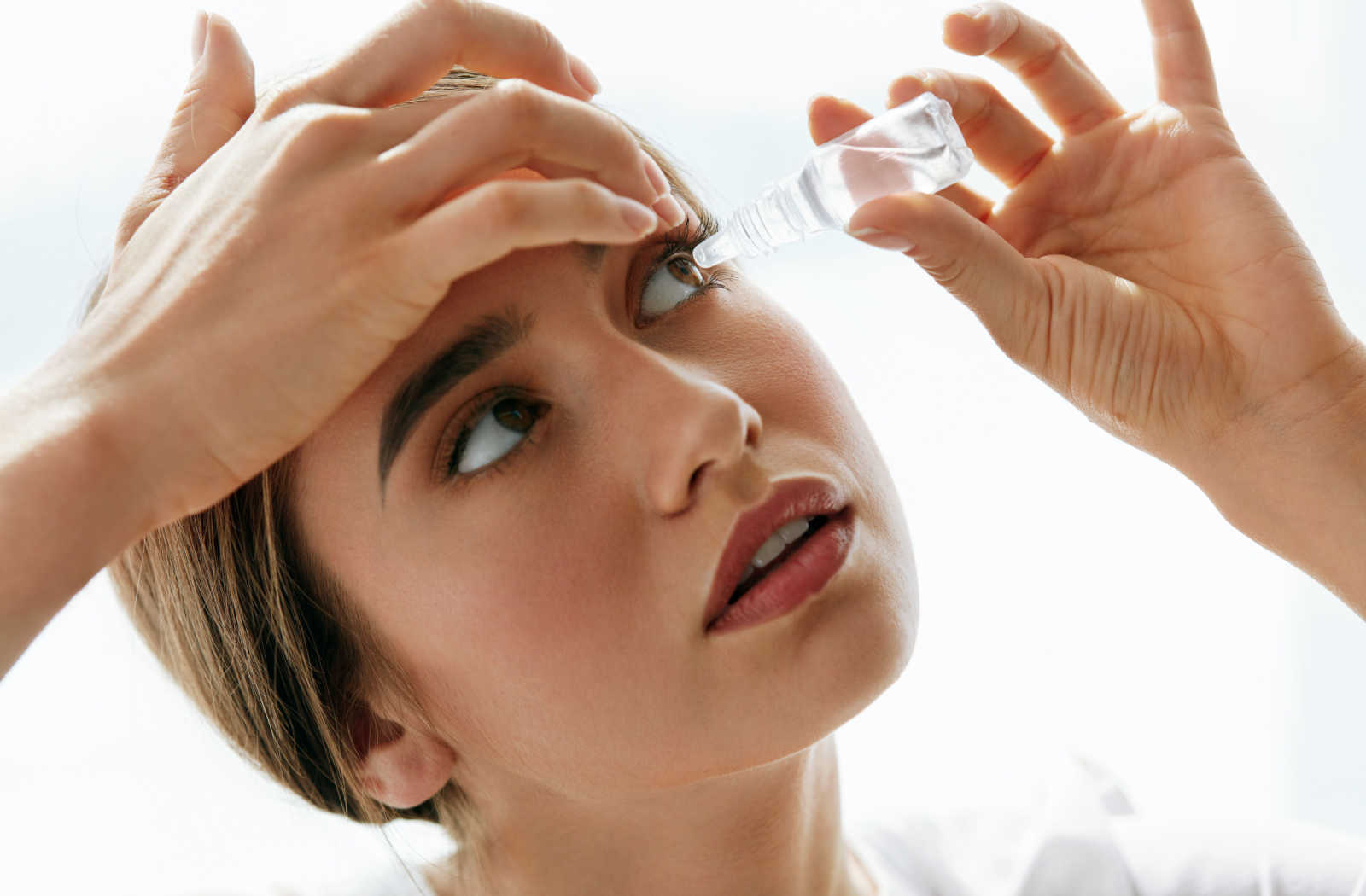To say dry eyes are a bother is an understatement. Dry eyes can lead to eye irritation, redness, and discomfort—all because your eyes don’t produce enough or good quality tears.
But you don’t have to live with dry eyes. There are several treatment options for dry eye. One possible option is omega-3 fatty acid supplements.
Omega-3s have many health benefits, but these fatty acids can improve the production of oil for tears and have the ability to reduce inflammation in dry eye disease.
When you have an eye exam, your eye doctor can check your vision and eye health, diagnose dry eye disease, and recommend an individualized treatment plan which can include omega-3 fatty acid supplements.
What Is Dry Eye Disease?
Dry eye disease is a condition that occurs when the eyes don’t produce enough tears or when the tears evaporate too quickly. Tears are essential for overall eye health and clear vision, so without sufficient quality tears, the eyes don’t receive the necessary lubrication.
What Causes Dry Eye Disease?
The causes of dry eye disease include factors affecting tear production or evaporation as they dry up too fast. Causes can include the following:
- Medicines: Some medications that treat depression and high blood pressure can have dry eye as a side effect.
- Medical conditions: Some health problems, such as diabetes, thyroid problems, and autoimmune disorders, can cause dry eye.
- Laser eye surgery: Some types of laser surgery can lead to decreased tear production.
- Environmental factors: Windy, smoky, or dry environments can cause your tears to dry up faster.
- Prolonged screen time: Looking at screens for long periods can lead to less blinking, causing dry eyes.
Dry eye disease can affect anyone, but it’s more common in the following:
- Women
- Those over the age of 50
- People who wear contact lenses
- Those who lack vitamin A or omega-3 fatty acids
Symptoms of Dry Eye Disease
Symptoms of dry eye disease can vary, but common signs include:
- Redness
- Stinging or burning sensation
- Stringy mucus in or around the eyes
- Watery eyes
- A feeling of something in the eye
- Light sensitivity
- Blurred vision

How Do Omega 3s Help with Dry Eyes?
Tears keep your eyes lubricated and smooth, but how do they work? Tears are comprised of 3 layers:
- The outer oily layer prevents tears from drying out too quickly.
- The middle water layer keeps the eyes moist and the eye’s surface smooth.
- The inner mucous layer helps the tear film stick to the eye’s surface.
When the tear film is imbalanced, such as it lacks one or more tear film components, it can lead to dry eyes. One example is meibomian gland dysfunction. The glands that produce oil in tears (meibomian glands) can become clogged, which causes eyes to dry out quicker.
Omega-3 fatty acids may help improve oil production for tears. And because it has an anti-inflammatory effect, it can reduce and soothe inflammation in your eyelids or on the eye’s surface.
Food can be your main source of omega-3 fatty acids. A diet rich in omega-3s can help your meibomian glands make the oily layer of your tears. But supplements can also help. One study suggests that orally administered omega-3 fatty acid supplements were beneficial in reducing dry eye symptoms related to computer vision syndrome, and in decreasing tear evaporation rate.
Omega-3 supplements are safe for healthy adults and typically have few side effects when taken in the correct dose. It’s always best to speak to your doctor before you take a supplement, and it’s important to know that while omega-3 supplements may be helpful, they should not replace recommended treatment methods by your eye doctor.
Treatment for Dry Eye Disease
Treatment for dry eye disease can vary and may depend on the severity of your symptoms and the underlying cause. The following treatment options can improve tear quality or reduce evaporation:
- Artificial tears: Over-the-counter artificial tears can help with mild dry eye and come in eye drops, moisturizing gels, and ointments.
- Medicated eye drops: For more severe dry eye, your eye doctor may prescribe medicated eye drops to help your eyes make more tears.
- Punctal plugs: Tear duct plugs prevent tears from draining too quickly and help keep the eyes moist for longer.
- Lifestyle changes: Changes to your environment to help prevent dry eyes can include avoiding smoke, wind, and air conditioning, using a humidifier, limiting screen time, and wearing sunglasses.
Dry Eye Relief for Comfortable & Clear Vision
Because dry eye disease is a chronic condition, personalized treatment may be necessary to relieve your symptoms. In addition to an individualized treatment plan, omega-3 fatty acids can be beneficial in helping you find relief.
If you experience discomfort due to dry eyes, book an appointment with Calgary Optometry Centre for an eye exam. We can also discuss omega-3 supplements to see if they could help you find dry eye relief!




